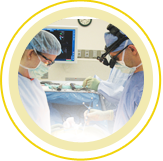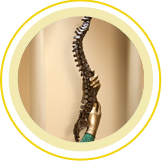Chronic back pain seems to be an epidemic in the US. We all know someone who suffers from it, or maybe we do. Our spine allows us to move freely and without pain as long as the structures are not damaged. The disks between our vertebrae are a prime example. They are the cushions that keep our vertebra from touching each other and causing that pain. Unfortunately those disks can become unhealthy due to age or damage from an accident, but fortunately patients with back pain can have a disk replaced with a metal or plastic one. When should you consider an artificial disk replacement?
News & Events
- Arthritis
- Back Pain
- Back Surgery
- Collapsed Disc
- Degenerative Disc Disease
- Fibromyalgia
- Herniated Disc
- Max Cohen MD
- Neck Pain
- News
- Osteoporosis
- Physical Therapy
- Pinched Nerve
- Published Articles
- Ruben Torrealba MD
- Sciatica
- Scoliosis
- Spinal Cord Compression
- Spinal Fusion
- Spinal Stenosis
- Spine Injuries
- Spine Injury Prevention
- Spine Tips/FAQS
- Success Stories
- The Surgeon's Perspective
- Whiplash
What Does It Mean to “Throw Your Back Out”?
It can happen in the most innocuous ways like bending down to tie your shoes. You are suddenly in extreme pain, you can barely stand up straight, and getting into a car is a non-starter. You probably have your own story about throwing your back out, and you remember it well. So exactly what does it mean to “throw your back out”?
7 Signs You May Have a Pinched Nerve
A pinched nerve, or radiculopathy, is caused by a disc or bone in the spine that presses on a nerve root coming out of the spinal cord. This compression can be painful, cause numbness, or weakness in an arm or leg. Let’s look at 7 signs you may have a pinched nerve.
What Is the Difference Between Sciatica and Sacroiliitis?
80% of Americans will experience back pain at some point in their lives. It may come from work issues, playing sports, or just putting on their shoes. Sciatica and sacroiliitis are common among these. Dull ache vs shooting pain is just one difference between the two conditions. The symptoms, causes, and treatments for these two conditions are different. What is the difference between sciatica and sacroiliitis?
Why Do I Need to Quit Smoking Before Having Spine Surgery?
Smokers and non-smokers alike are aware that smoking negatively affects someone’s overall health. What you might not know is how smoking affects if and how you heal after any surgery. Having surgery on your spine portends some specific issues if you are a smoker. Let’s investigate why you need to quit smoking before having spine surgery.
Radiculopathy Diagnosis? What You Need to Know
Frequently referred to as a pinched nerve in your spinal column, radiculopathy can strike in your cervical or neck area, your lumbar region or lower back area, or your thoracic area or mid back region. It causes a number of uncomfortable symptoms, so a diagnosis is imperative to receive the proper treatment. Radiculopathy diagnosis? What you should know.
Osteoporosis and Spinal Fractures: What You Should Know
Getting older is not for the faint-hearted. As time passes, we can’t see as well as we used to, we get wrinkles, our hair turns gray, and you can add your own. One other significant change is our weakened bones. It’s usually due to osteoporosis. We don’t pay attention to it until something happens. Let’s investigate osteoporosis and spinal fractures: what you should know.
The Dangers of Leaving Whiplash Injury Untreated
Frequently whiplash is the result of a car accident, sometimes it can be a fall, or even playing certain sports. It will hurt the first day or so, but if the pain is relieved by over-the-counter medications, you may be tempted to do nothing further. That would be a mistake. The dangers of leaving whiplash injury untreated can last a lifetime.
An Athlete’s Guide to Back Injury Prevention
When you experience back pain, sometimes you don’t even know what you did to cause it. Skip the suffering and discover how you can prevent it from happening again. Even if you’re not an avid athlete, you can probably use an athlete’s guide to back injury prevention.
Spine Surgery Do’s and Don’ts
Undergoing back surgery is no walk in the park, and you want to find relief as quickly as possible. The best thing you can do is take steps to ensure you have a safe recovery. Let us provide guidelines and advice about some spine surgery do’s and don’ts.



